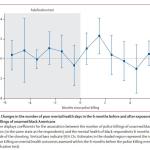Testosterone does a lot of different things for a men -- it masculinizes the body, boosts the sex drive, and contributes to hair loss. Now, researchers think it may also make men more honest.
Mental Health & Society
We have a culture that completely denies personal responsibility. If we can't control ourselves, we insist that we have a disease. That way, nothing is ever really our fault.
Complaining about another state's drivers is something of a national pastime. Here in Washington State, Oregon drivers are the target of our wrath; in Illinois, where I grew up, we picked on Missouri drivers. (The "Show Me State"?
MedCure is a company whose mission is to get as many people to donate their bodies to science as possible. There's certainly no shortage of potential customers. The trouble is getting people to make the leap and sign up.
Are you afraid of spiders? You aren't alone. (Well, except when it's just you and the spider.)
The board game Clue taught us that murder weapons could be diverse.
A recent article published in The Lancet alleges that the number of police killings of unarmed black men is causing the mental health of bla
In science and health, we are often looking for results that are considered to be “statistically significant.” The golden rule is if the p-value is less than 0.05, then the result is statistically significant, or “publishable.” However, the interp
The match is on the line.
There is increasing evidence that a correlation exists between a person’s social support and engagement and their longevity.












